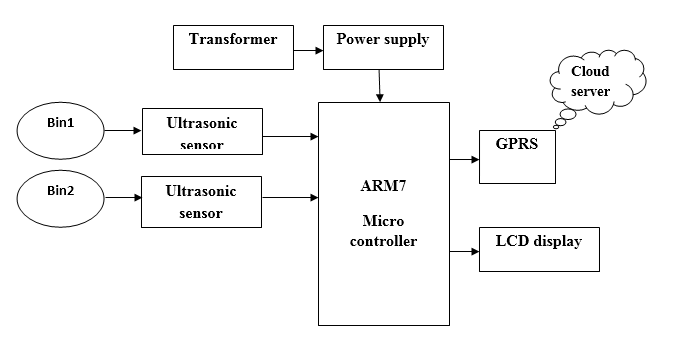Modelling e-waste Management Data in Smart Cities
Abstract
Internet of Things (IoT) links smart objects to the internet. It can enable exchange of data in a more secure way. Rapid adaptations of Smart City and Internet of Things technologies are assisting in urban planning to ensure sustainable cities and lifestyles. Life is made simpler and more productive through IOT.
In the existing system, garbage bins are manually managed and it needs human effort to check every time. Monitoring and management of wastes is one of the primary issues in the cities. In the proposed system we have automated this process. Here we are using ultrasonic sensors which are fixed over the dustbins. When waste is filled in the bins the distance will be decreased between the waste and sensors. Every time it will check the level and calculates the distance. This live data is sent to Controller. The controller will process the data and send to the cloud server through GPRS. Through this webpage the user can access the data and plan according to that; which bin needs attention and certain action will be taken to clean the bins.
Keywords: ARM7, Ultrasonic sensor, E-waste, Thingspeak
NOTE: Without the concern of our team, please don't submit to the college. This Abstract varies based on student requirements.
Block Diagram

Specifications
Hardware requirements:
- Power supply
- ARM7 Micro controller
- Ultrasonic Sensor
- GSM/ GPRS
- LCD Display
Software Requirements:
- Keil IDE
- Embedded C
Learning Outcomes
- What is ARM7?
- How ARM7 works?
- What is Ultrasonic sensor?
- How Ultrasonic works?
- What is GSM?
- What is GPRS?
- What is Thingspeak?
- What is Power Supply?
- How Power Supply works?
- About Project Development Life Cycle:
- Planning and Requirement Gathering( software’s, Tools, Hardware components, etc.,)
- Schematic preparation
- Code development and debugging
- Hardware development and debugging
- Development of the Project and Output testing
- Practical exposure to:
- Hardware and software tools. ,
- Solution providing for real time problems,
- Working with team/ individual,
- Work on Creative ideas.
- Project development Skills
- Problem analyzing skills
- Problem solving skills
- Creativity and imaginary skills
- Programming skills
- Deployment
- Testing skills
- Debugging skills
- Project presentation skills
- Thesis writing skills





 Paper Publishing
Paper Publishing
